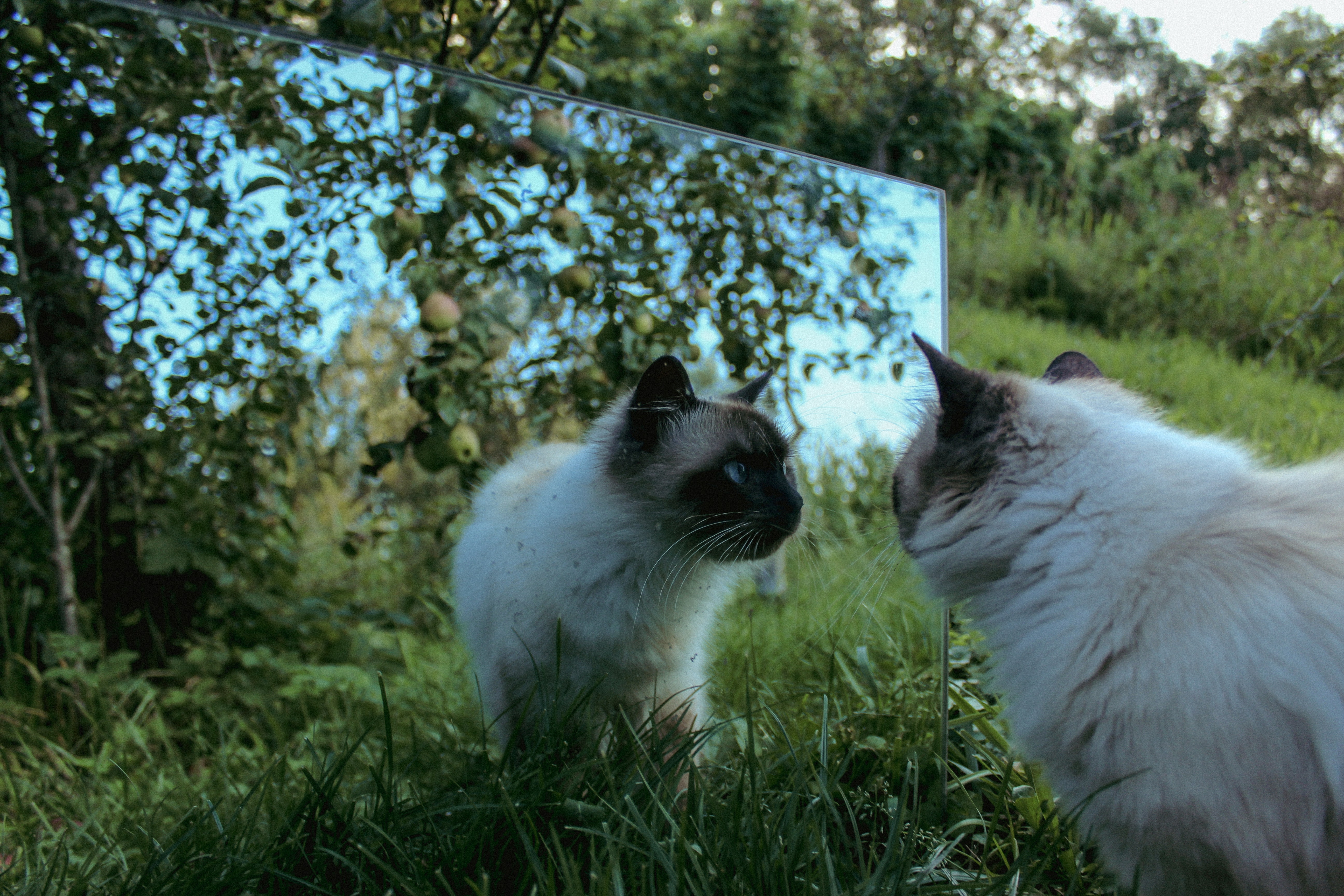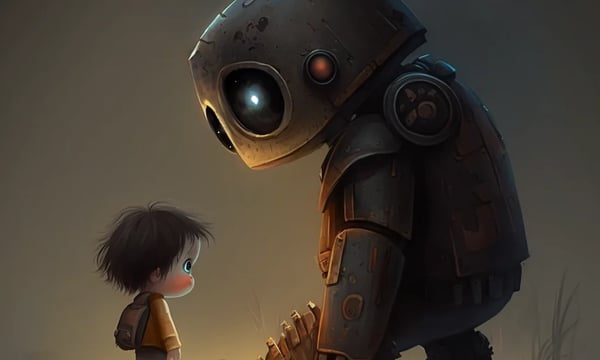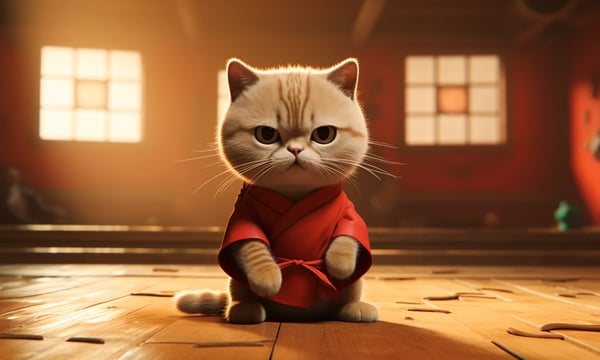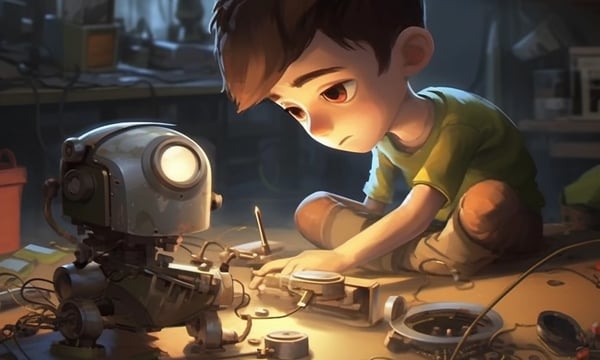A few years ago, during the golden age of startups getting VC funding, there was always this kind of VC big shot who would ask, "What if a big company copies you?"
Actually, dude, you're really overthinking it. In most cases, there's no need to worry about this question at all: most products never develop to the time where big companies would bother copying them.
(End of article)
Sorry, not yet.
Indeed, the reality is just like that, most products really don't live long enough to be seriously considered by big companies. Answering this question is like living in a universe with a Great Filter, pondering "What to do if we encounter first contact with aliens?"
It's better to spend energy solving current problems.
However, if you do find yourself being copied, engaging in argument with the copier, hearing "Imitation isn't copying... can the affairs of scholars be considered copying?" followed by incomprehensible talk of "tributes" and "having an attitude," makes everyone uncomfortable.
Pixel-level plagiarism is already difficult to fight for rights over, but what if the other party copies your business model? What then?
It Might Be Quite Tricky for Big Companies
I wonder what everyone thinks of a niche consumer product reaching 10 million DAUs. Many would find that impressive—I think so too.
But for a company controlling entries to billions of users, opening a gateway for this new product with 10 million DAUs in their traffic pool requires deliberation. With billions of users, even placing a piece of crap at the entry would attract tens of millions daily to give it a try. So, what to place and how to present it needs careful consideration.
#1 Revenue will definitely be affected
A new product, with its unique user value and lifecycle, poses a logistics problem when considering revenue. Will the new product divert traffic from reliable revenue-generating old products, thereby impacting company profits?
Of course, while a new product might decrease short-term revenue, it could possibly expand business horizons, find new growth directions, and make more money in the long run. But even if the company has a group of adventurous managers, it still needs to consider the feelings of shareholders, especially sensitive to profits.
Startups don't care about this. Startups don't have other revenue streams to compete with; doing well with this one product is the best revenue channel.
#2 There might be internal competition for resources
Since a new product line might affect revenue, moving the old business line's cheese becomes even more of a reality.
Everyone in the same company works together not just because of five hundred years of cultivation, but because their short-term goals are essentially aligned. "Alignment of OKR" implies many differences. The demands of company executives, middle class, and employees are completely different. The objects/KPI of different departments can contradict.
In this situation, it's uncertain whether the new business line's manager inviting the old business line's veteran for a coffee chat to talk things over is appropriate.
Startups generally don't have many businesses, so the current small product is their biggest business. If everyone can work together in this small team, they must be united comrades in the same trench.
#3 One Product-Market Fit, Two Interpretations
In short, since a new product is innovative, it might slightly disrupt some of the company's existing aspects, not just revenue and team goals, but also brand tone and strategy. For big companies, this is a risk.
Especially for companies claiming to be the "base camp of netizens" with hundreds of millions of users, like Google or Meta, their target user group is everyone, and the products they create must be broadly acceptable. This means product design must sacrifice some uniqueness, as they cannot abandon their base, which is a path dependency. For example, Meta, as a universal communication platform owns Facebook, WhatsApp and Instagram, is almost impossible to pivot to making a stranger socializing service.
This is like chain restaurants; you know their dishes' quality is definitely stable, catering to all customers' preferences. But for customers with specific preferences, it's not outstanding.
Startups are different. They don't have a base to begin with, with nothing in their historical user group to give up. Therefore, they can confidently develop their own cultural identity, build their own user community, solve problems big company products can't, and win over these users.
Make Users Love You
In the internet industry, "Moat" is a term often mentioned. This term has revealed the view that "Users are my resources", because they are resources, so a "Moat" is needed lest they be taken away.
Of course, this is partly because the services provided to the end-users in the internet industry are easily scalable; and what deals with people are replicable programs. In this sense, users really are resources to be competed for or even plundered.
But this view, traditional business folks and those catering to enterprise clients definitely disagree with, as their operational models are clearly different from the internet industry. In their eyes, customers are not just resources but long-term partners, far beyond simple transactional relationships.
For instance, when we talk about services for enterprises, we're talking about deep cooperation, customized solutions, and long-term business relationships. Indeed, scalable and general SaaS can meet superficial needs, but big clients often have unique demands requiring in-depth understanding, long-term maintenance, and innovation.
Moreover, traditional business folks place more value on human relationships. In their dictionary, customers are not just numbers and data but flesh and blood, emotional beings. The relationships they build with customers are long-term trust, not fleeting transactional interactions.
However, like many industries' development, the gap between these two isn't irreconcilable.
Looking at products for the end-users, everyone has noticed that each App's user is a real person, just like you in the company, with their own needs, feelings, and emotions. This led to the subsequent development towards "personalization."
Secondly, the demand for emotions isn't just about satisfying user scenarios. Pursuing common values has become increasingly important, even in ordinary consumer decisions. People no longer just chase product or service functionality or just care about price; they begin to care about emotional connection with the product, community culture, and shared values.
If a user says, "Let me introduce an App I'm using," they're treating you as an outsider. If they say, "Let me introduce an App we're all using," they're treating you as one of them.
So, when I said startup's products should develop their own cultural identity, the goal was to transform users from "resources" into different kind of "Moat". This moat doesn't need to protect users from competing but instead protects your product and the emotional bond established with users.
Thus, the relationship between the product and users is no longer merely transactional. When a product not only meets the functional needs of users but also forms a deep emotional connection, this relationship is like the deep affection between lovers, not the superficial interaction of casual acquaintances.
Under this tight emotional bond, any competitor trying to intervene, disrupt, or attempt to pull away users will face a huge challenge. Because they're not just surpassing a functionally superior product, but also breaking a deep emotional bond.
Take the note-taking software beloved by independent developers, for example. Do all these note-taking Apps solve some pain point? Bi-directional links? Knowledge graphs? In my view, not at all. Everyone just provides a tool for comfortably being a squirrel. So why use Notion/Obsidian/LogSeq/Evernote... when their basic functions are similar?
"Because I like it".
Tremendous growth is not the only way
However, establishing cultural identity comes at a cost—that is, it's difficult to become the "base."
Or in other words, as the user scale grows, cultural identity becomes increasingly diluted, until it's as shallow as the broadest group of internet users—anyone who can go online, regardless of whether they're a dog.
For a long time, many entrepreneurs have been chasing scale: fundraising -> burning cash to get users -> dominant the market -> ... maintaining this cycle until going IPO, allowing the stock market to pay the company a loan that never needs to be repaid. Then everyone, from investors to founders, is relieved. But what's the cost?
- #1: Most startup teams will fail.
- #2: Becoming pawns of investors: Even if the company is already maintaining profitability, but if this level of profit is unacceptable to investors, can the product and business maintain their original intentions?
At this stage, we can be less obsessed with scale.
Living in Japan, I've noticed the prevalence of "century-old businesses." The coffee/tea shop by my door has been around for over 200 years. Over the years, it might have always served the residents of this neighborhood, providing a place for socializing and chatting.
Does running a business necessarily mean aiming to serve all 8 billion people globally? The coffee shop owner certainly doesn't think so. What the coffee shop owner thinks is: I brew good tea, make good coffee, and my customers come for my craftsmanship. While I could open branches, could the branch managers make good coffee, and win the love of customers in their neighborhoods? Difficult.
Can VCs solve this problem? Or say, can capital, standardization, and scale solve this problem? I don't think so. Therefore, if you base your business on such trades—on trades that cannot be scaled well, big companies will have a hard time copying your stuff.
For such trades, it's clear that you must provide something unique over a long period. That is, we all must create. "Be an artisan first, then an entrepreneur1."
In the end, if you find that big companies are really copying you, don't worry too much.
Maybe
it's because you're too excellent, and they simply can't resist your charm. You're like that coffee shop owner; you don't care about not being able to open a global chain because you know only your marvelous cup of coffee can attract your loyal customers. The key is, you can serve them a "special blend for the copycats", something the imitators can never replicate. 😉
-
The Minimalist Entrepreneur ↩︎






